Setting Resources Dependencies (Failover Cluster Manager)
After adding the services and scripts to the MyQ server role, open the Resources tab of the MyQ server role at the bottom of the Roles tab and set the dependencies of the MyQ services and scripts.
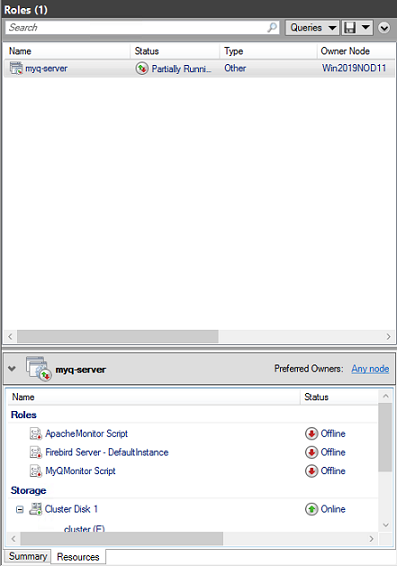
Set the Firebird Server - DefaultInstance service dependency
In the list at the bottom of the tab, right-click Firebird Server - DefaultInstance, and click Properties. The Firebird Server - DefaultInstance Properties dialog box opens.
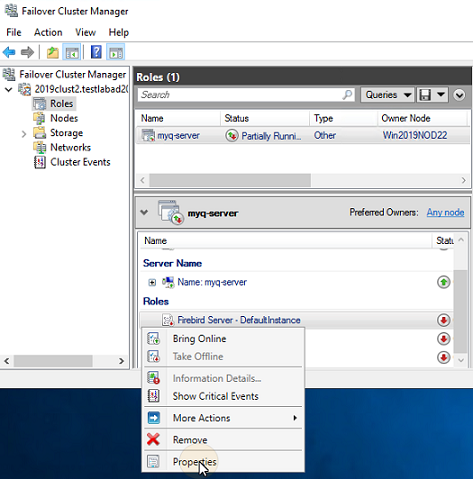
In the dialog box, open the Dependencies tab, add the shared disk drive (or NAS) where the system is supposed to work on, add the name of the MyQ server role, and click OK. The dependency is set.
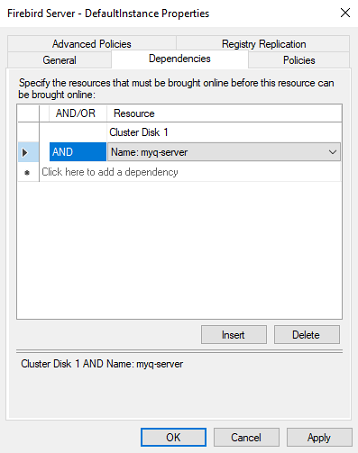
Set the MyQMonitor script dependency
In the list at the bottom of the tab, right-click MyQMonitor Script, and click Properties. The MyQMonitor Script Properties dialog box opens.
In the dialog box, open the Dependencies tab, add the Firebird Server - DefaultInstance, and click OK. The dependency is set.
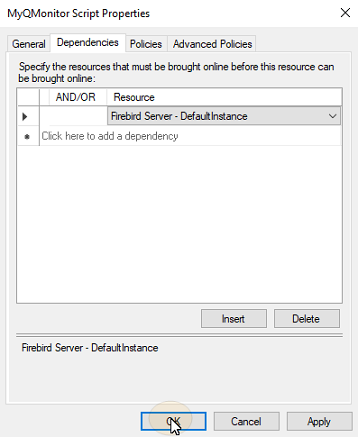
Set the ApacheMonitor script dependency
In the list at the bottom of the tab, right-click ApacheMonitor Script, and click Properties. The ApacheMonitor Script Properties dialog box opens.
In the dialog box, open the Dependencies tab, add the MyQMonitor Script, and click OK. The dependency is set.

Set the TerminalsMonitor script dependency (only if embedded terminals are used)
In the list at the bottom of the tab, right-click TerminalsMonitor Script, and click Properties. The TerminalsMonitor Script Properties dialog box opens.
In the dialog box, open the Dependencies tab, then add the ApacheMonitor Script, and click OK. The dependency is set.
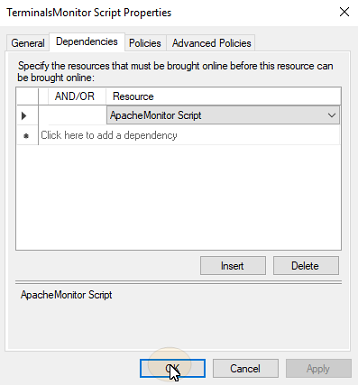
Once you upload an Embedded terminal installation package on the MyQ web administrator interface of the MyQ cluster server, the cluster uses the script to distribute the package among all the other nodes.
.png)